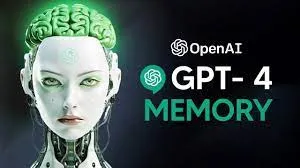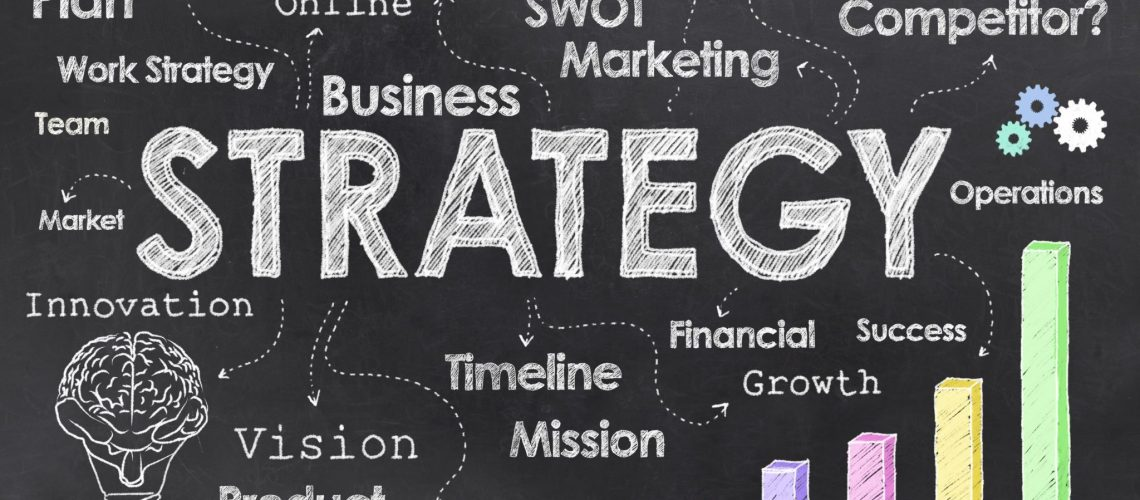Memory Capability with ChatGPT: How It Impacts Business Strategy
February 14, 2024 in Business Strategy, Artificial Intelligence by Industry Talk5 minutes
Learn how ChatGPT's impressive memory capability impacts key areas of business strategy like customer support, sales, and market research.
Memory Capability with ChatGPT: How It Impacts Business Strategy

Introduction
In today’s fast-paced digital world, businesses are constantly seeking innovative ways to improve their customer interactions and enhance their overall business strategy. One such innovation that has gained significant attention is the development of advanced language models like ChatGPT. These models, powered by artificial intelligence, have the ability to understand and respond to human language, making them valuable tools for businesses in various industries. However, one crucial aspect of these models that often goes unnoticed is their memory capability. In this article, we will explore the concept of memory capability in ChatGPT and discuss its impact on business strategy.
Understanding Memory Capability in ChatGPT
Memory capability refers to the ability of ChatGPT to retain and recall information from previous interactions. Unlike traditional chatbots that have limited memory, ChatGPT has the advantage of being able to remember context and maintain a coherent conversation over extended periods. This memory capability is achieved through a technique called “attention mechanism,” which allows the model to focus on relevant information and retain it for future reference.
The Impact on Business Strategy
The memory capability of ChatGPT has significant implications for businesses across various sectors. Let’s explore some key ways in which it can impact business strategy:

Personalized Customer Interactions
With its memory capability, ChatGPT can remember previous interactions with customers and provide personalized responses based on their specific needs and preferences. This level of personalization can greatly enhance the customer experience, leading to increased customer satisfaction and loyalty. By understanding customer history and preferences, businesses can tailor their offerings and recommendations, ultimately driving sales and revenue.
Improved Customer Support
Customer support is a critical aspect of any business, and ChatGPT’s memory capability can revolutionize this area. By remembering past conversations, ChatGPT can provide more accurate and efficient support, reducing the need for repetitive questions and improving issue resolution time. This not only enhances customer satisfaction but also frees up human support agents to focus on more complex and high-value tasks.
Enhanced Market Research
Market research plays a vital role in shaping business strategies. ChatGPT’s memory capability can be leveraged to gather valuable insights from customer interactions. By analyzing the data stored in its memory, businesses can identify patterns, trends, and customer preferences, enabling them to make data-driven decisions and develop targeted marketing campaigns. This can lead to improved customer targeting, increased conversion rates, and a competitive edge in the market.
Streamlined Sales Process
ChatGPT’s memory capability can also streamline the sales process for businesses. By remembering previous interactions, the model can provide personalized product recommendations and address customer concerns more effectively. This can lead to a smoother sales journey, higher conversion rates, and increased customer satisfaction. Additionally, ChatGPT can assist sales teams by providing real-time access to product information and sales scripts, empowering them to deliver consistent and accurate messaging.
Continuous Learning and Improvement
Another significant impact of memory capability is the potential for continuous learning and improvement. ChatGPT can learn from past interactions and adapt its responses over time. This allows businesses to refine their strategies based on customer feedback and evolving market dynamics. By leveraging the memory capability of ChatGPT, businesses can stay agile and responsive, ensuring that their strategies remain relevant and effective in a rapidly changing business landscape.
Frequently Asked Questions
Q: How does ChatGPT’s memory capability differ from traditional chatbots?
A: ChatGPT’s memory capability sets it apart from traditional chatbots by allowing it to retain and recall information from previous interactions. This enables more personalized and context-aware conversations, leading to improved customer experiences.
Q: Can ChatGPT’s memory capability be customized for specific business needs?
A: Yes, ChatGPT’s memory capability can be customized to align with specific business needs. By training the model on relevant data and fine-tuning its memory retention, businesses can optimize its performance for their unique requirements.
Q: Are there any limitations to ChatGPT’s memory capability?
A: While ChatGPT’s memory capability is impressive, it does have some limitations. The model’s memory is not infinite, and it may struggle with extremely long conversations or complex contexts. Additionally, it may occasionally exhibit errors or provide incorrect information based on its stored memory.
Q: How can businesses ensure data privacy and security when using ChatGPT’s memory capability?
A: To ensure data privacy and security, businesses should implement robust encryption and access controls when storing and retrieving customer data. It is crucial to comply with relevant data protection regulations and regularly update security measures to mitigate potential risks.
Q: What are the future possibilities for ChatGPT’s memory capability?
A: The future possibilities for ChatGPT’s memory capability are vast. As the technology continues to advance, we can expect even more sophisticated memory models that can handle complex contexts, retain long-term memory, and seamlessly integrate with other business systems. This opens up opportunities for advanced analytics, predictive modeling, and personalized recommendations, further enhancing business strategy and customer experiences.
Conclusion
The memory capability of ChatGPT has a profound impact on business strategy. By leveraging its ability to retain and recall information from previous interactions, businesses can personalize customer interactions, improve customer support, enhance market research, streamline the sales process, and continuously learn and adapt. As the technology continues to evolve, businesses must embrace the potential of ChatGPT’s memory capability and leverage it to gain a competitive edge in the market. By doing so, they can unlock new opportunities for growth, customer satisfaction, and long-term success.